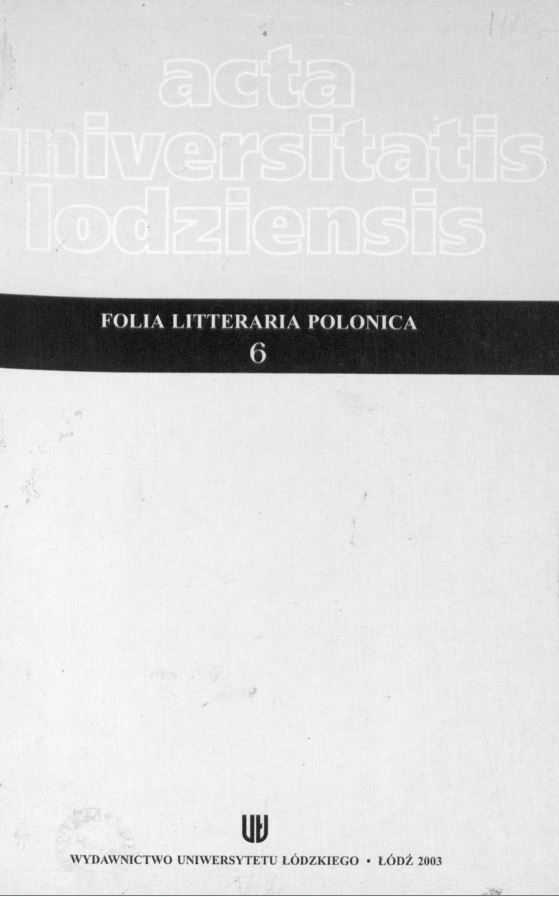Jesień 1773 [roku]. Wiersz Józefa Koblańskiego jako źródło inspiracji dla Franciszka Karpińskiego i Adama Naruszewicza
DOI:
https://doi.org/10.18778/1505-9057.06.07Abstrakt
It is worth underlining that the poem by Koblański discussed in here expressed the reaction to the first partitions of the country and it was received as a voice which rendered accurately feelings, misgivings and hopes the inhabitants of cordoned-off areas. It is proved in the commentary to the text in the mentioned edition, Political poetry of the first partitions and the delegation seym 1772-1777, in which we read, “About 1795 Karpiński refered to Koblański s poem in his work “To A(ntoni) D(zieduszycki) on the occasion of his arrival from Warsaw in Rus, Galicia” and Naruszewicz did it in a poem, “Replay from Dzieduszycki to Karpiński” , Strong connections of the text with Autumn 1773 are not accidental. Thus, the patriotic elegy by Koblański, beside Sokalski beggar's song in emperor's cordon by Karpiński, occured the second significant though less known nowadays reaction to the news about ratification of the partitions treaty by the Seym; the news coming from the areas whose centre was Lwów.
Pobrania
Pobrania
Opublikowane
Jak cytować
Numer
Dział
Licencja

Utwór dostępny jest na licencji Creative Commons Uznanie autorstwa – Użycie niekomercyjne – Bez utworów zależnych 4.0 Międzynarodowe.











